The landscape of medical marijuana is rapidly changing not just in the Western world, but also in Eastern Europe. Historically known for its stringent regulations, Eastern Europe is gradually embracing the medicinal benefits of cannabis, with several nations decriminalizing its use and introducing comprehensive frameworks for its cultivation and distribution. This shift signals a new chapter in Eastern European healthcare, politics, and culture.
In the realm of medical treatments, Cannabis-based products, particularly those containing Cannabidiol (CBD), are increasingly recognized for their potential therapeutic benefits. CBD, a non-psychoactive component of cannabis, has been shown to aid in managing a wide range of conditions, from chronic pain and epilepsy to anxiety and multiple sclerosis.
Let’s navigate the shifting terrain of medical marijuana in Eastern Europe, touching on its cultural implications and the specific legislation across the region.

North Macedonia’s journey into cannabis acceptance was spearheaded by a strong desire to bolster its economy and provide relief to patients in need. Recognizing the financial potential of the rapidly growing global weed industry, the country swiftly legalized the production and export of marijuana for medical purposes. Since 2016, the country’s health ministry has granted dozens of licenses to domestic and international companies for the cultivation of medical marijuana.
Skopje, the capital, has seen an influx of specialized clinics that prescribe cannabis-based treatments to patients under strict regulations. Despite a cultural reluctance around marijuana use, these clinics, alongside patient advocacy groups, have played a vital role in reshaping public perception. They have also created an environment where medical professionals can educate themselves and their patients about the potential benefits of cannabis.
The Macedonian government has also set up a regulatory body to oversee the quality and safety of domestically cultivated weed. This regulatory framework ensures that Macedonian cannabis meets the standards set by the European Union, contributing to its reputation as a reliable player in the global weed market. Despite these strides, challenges remain, particularly around insurance coverage for marijuana treatments and scaling cultivation to meet the rising demand.
The Czech Republic has long been a beacon of progress in Eastern Europe’s cannabis narrative. Its capital, Prague, is a hub for cannabis activism and scientific research. The country’s progressive stance began with decriminalizing possession of small amounts of marijuana in 2010, and by 2013, it had established a framework for the use of medical pot.
Despite its advanced legislation, the country grapples with a few challenges. One key issue is the lack of a robust distribution network. While medical cannabis is legal, patients often face hurdles in accessing it due to an unreliable supply chain. Efforts are underway to establish a stable cultivation and distribution system to ensure a consistent supply for patients.
Moreover, the Czech Republic has a vibrant marijuana culture. Prague hosts the annual Cannafest, one of the largest cannabis trade shows in the world. The event provides a platform for stakeholders from around the globe to discuss industry trends, regulatory challenges, and the latest scientific findings on cannabis.
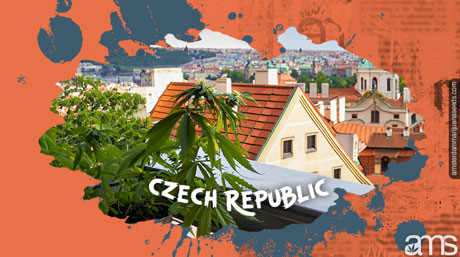
Poland’s legalization of medical marijuana in 2017 signaled a dramatic shift in the country’s conservative socio-political landscape. The move was largely influenced by patient advocacy and a recognition of the growing body of scientific evidence supporting cannabis’s therapeutic benefits.
This change has had a profound impact on cities like Warsaw and Krakow, where access to alternative forms of treatment was previously limited. The legalization has allowed medical professionals in these cities to prescribe cannabis products for a range of conditions including chronic pain, multiple sclerosis, and epilepsy.
Despite legalization, the Polish government maintains strict control over the cultivation and distribution of weed. Currently, all medical cannabis products are imported, mainly from Canada and the Netherlands, and distributed through pharmacies. While this has ensured a degree of quality control, it has also led to high costs for patients.
Croatia represents another success story in Eastern Europe’s medical marijuana narrative. Since its legalization in 2015, the capital city of Zagreb has witnessed a shift in public perception toward medical marijuana. Initial skepticism has been replaced with a cautious acceptance, driven by mounting evidence of the therapeutic benefits of marijuana.
The government has facilitated the use of medical cannabis by establishing a tightly controlled framework for its prescription and distribution. Healthcare providers in Zagreb and beyond are now more inclined to recommend pot-based treatments for ailments that fail to respond to conventional therapies.
The acceptance of medical cannabis in Croatia is seen as part of a broader movement toward patient-centered care. By focusing on the individual needs of patients, Croatian healthcare providers are championing a shift towards a more holistic and inclusive approach to health and wellbeing. Despite the progress, Croatia, like many of its Eastern European neighbors, continues to grapple with issues such as affordability and access to medical marijuana.
While Eastern European nations are increasingly embracing the therapeutic benefits of weed, the path to widespread acceptance and effective integration into healthcare systems is fraught with obstacles. Navigating these challenges necessitates a comprehensive understanding of the complexities surrounding cannabis legislation, cultivation, societal perception, and the intricacies of its components such as CBD and THC.

One of the most significant hurdles in harnessing the full potential of medical cannabis in Eastern Europe is the region’s legal framework. Even though many countries have legalized medical marijuana, laws around its cultivation, distribution, and usage often remain vague. In some cases, legislation conflicts with EU regulations, further complicating the matter.
For example, some countries allow cultivation for personal use, while others strictly prohibit it. In countries like Poland, while medical cannabis is legal, it cannot be domestically grown, forcing reliance on imported products. Legal inconsistencies like these lead to a fragmented and inefficient system that hinders patients’ access to treatment.
The lack of a robust cultivation infrastructure is another significant challenge. As Eastern Europe navigates its cannabis revolution, it needs to develop sustainable, efficient, and quality-controlled cultivation processes.
A sound infrastructure is crucial for ensuring the consistency and quality of medical cannabis. It involves investment in sophisticated growing facilities, skilled manpower, and stringent quality control mechanisms.
Some countries, like North Macedonia, are making strides in this direction by licensing companies to cultivate medical cannabis domestically. However, many Eastern European nations still rely heavily on imports, resulting in high costs and supply inconsistencies.
Despite progressive legislation, the societal stigma associated with cannabis use persists. Many people continue to associate marijuana with recreational drug use, often overlooking its medicinal potential. These stigmas can discourage patients from exploring weed as a potential treatment option and impede healthcare providers from recommending it.
Public education initiatives, advocacy by patient groups, and transparent communication from healthcare providers can play a crucial role in debunking misconceptions and reshaping societal perceptions.
While CBD, the non-psychoactive component of cannabis, is generally accepted due to its wide range of therapeutic benefits, THC, the compound responsible for the plant’s psychoactive effects, remains contentious. Concerns around THC’s potential for misuse and the possibility of psychological side effects have led to restrictions on its medical use.
The challenge lies in leveraging the potential therapeutic benefits of THC, such as its pain-relieving properties, while minimizing the risks. More scientific research and robust clinical trials could help strike a balance, shaping more informed regulations around THC use.
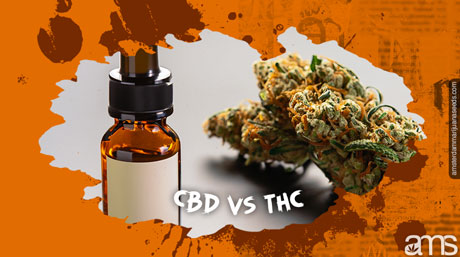
Despite these challenges, the trend is clear: acceptance of medical marijuana is sweeping across Eastern Europe. This transformation is driven by a combination of compelling scientific evidence, progressive legislation, and a changing cultural perception.
As more and more countries in the region recognize the therapeutic potential of cannabis, we are likely to see a significant shift in the region’s healthcare landscape. This change won’t merely influence how patients manage their conditions; it will also drive further research into cannabis’s therapeutic potential, stimulate economic activity through domestic cultivation and distribution, and perhaps most importantly, challenge deeply ingrained societal stigmas surrounding weed use.
Eastern Europe’s green revolution is just beginning. With continued advancements in research, progressive legislation, and a growing acceptance of the therapeutic benefits of cannabis, the region is paving the way for a greener, more inclusive future. Yet, realizing this future will require ongoing commitment, not just in terms of policy and infrastructure, but also in public education and stigma reduction. Indeed, the full realization of the medical marijuana framework in Eastern Europe is a journey, and it’s one that’s well underway.
Disclaimer: This content is intended for educational purposes only and is based on research from external sources. It is not meant to substitute for professional medical advice. Please consult your doctor before starting any new treatment. Ensure you are aware of your local laws regarding the use of cannabis.
Cannabis-based products, particularly those containing Cannabidiol (CBD), have shown potential therapeutic benefits for managing various conditions, including chronic pain, epilepsy, anxiety, and multiple sclerosis.
The challenges include legal ambiguities surrounding cultivation, distribution, and usage of cannabis, the lack of a robust cultivation infrastructure, societal stigma associated with cannabis use, and the need to strike a balance between the therapeutic benefits and risks of THC, the psychoactive component of cannabis.
Eastern Europe has undergone a shift in its approach to cannabis, with several countries decriminalizing its use and establishing frameworks for cultivation and distribution. The cultural implications of this shift are significant, as it represents a new chapter in Eastern European healthcare, politics, and culture.



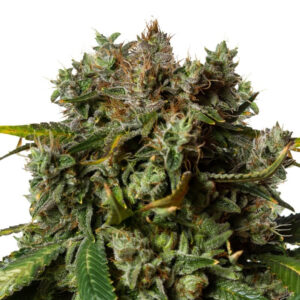

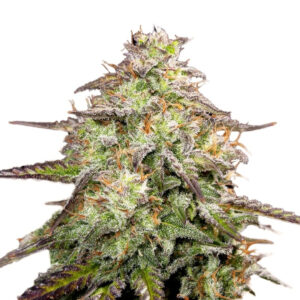
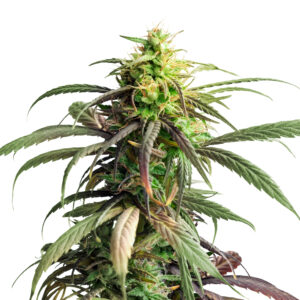






Related Posts
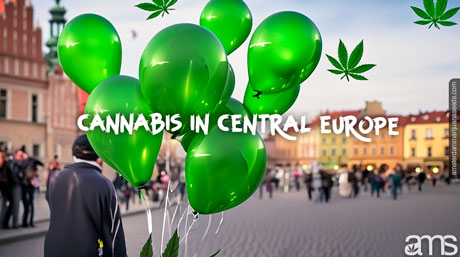
The landscape of cannabis in Central Europe is as diverse and dynamic as the region itself. Rich in history and culture, Central Europe, a region predominantly comprising the countries of Germany, Austria, Hungary, Poland, Czech Republic, Slovakia, and Slovenia, is currently undergoing a significant shift in its perspective towards this age-old plant. Each of these countries carries its unique narrative…
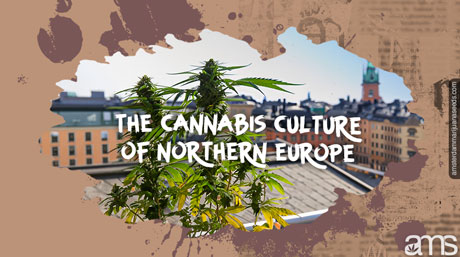
In the realm of medical research and politics, the cold, scenic landscapes of Northern Europe are heating up with debates around the growing trend of medical marijuana usage. From the cultivation of the cannabis plant to the use of CBD in health and wellness, this region is demonstrating a shift in societal and political perceptions that are impacting local cultures and beyond.

The widespread acceptance of cannabis, coupled with its increasing legalization for medicinal and recreational use, has sparked an interest in home cultivation, especially in the vast and varied landscapes of Eastern Europe.